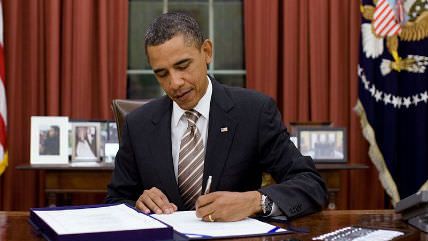Obama's New Student Debt Plan Will Exacerbate America's Widening Skills Gap

Workers in the skilled trades, such as electricians, welders, and machinists were the hardest for employers to find from 2010 to 2012 and the second hardest in 2014, according to surveys by the human resources consulting firm ManpowerGroup. This problem is likely to continue because a majority of the workers in these professions currently are 45 or older.
Genevieve Stevens, an administrator for Houston Community College at Central College, articulated how we got into this predicament and offered a way out of it when she spoke to Houston Chronicle:
"For two or three generations, the focus has been to go to college, get a degree and in doing so you will ensure a brighter future with more access to employment. We started focusing on academic instruction, but left behind the notion of work-force education. However, in a two-year institution that costs less, the average work-force student can come out of that program with skills to gain immediate employment."
But President Barack Obama's new plan to decrease student debt will only make the problem worse since there is a deficit of workers in skilled trades, but a surplus of people with college degrees. Neal McCluskey of the Cato Institute reported last week that a third of graduates with a bachelor's degree are in jobs that don't require the credential. Underemployment is even worse for people with graduate degrees. He writes:
"In the name of helping them, federal politicians, and many other people, massively oversell higher education to the detriment of students."
Government influence on higher education has already unbalanced the supply and demand of the labor market enough. Obama's plan to try and make college more accessible will only serve to exacerbate this problem and further widen the skills gap that currently exists in the job market.
Reason TV spoke with Dirty Jobs' Mike Rowe about the skills gap:
